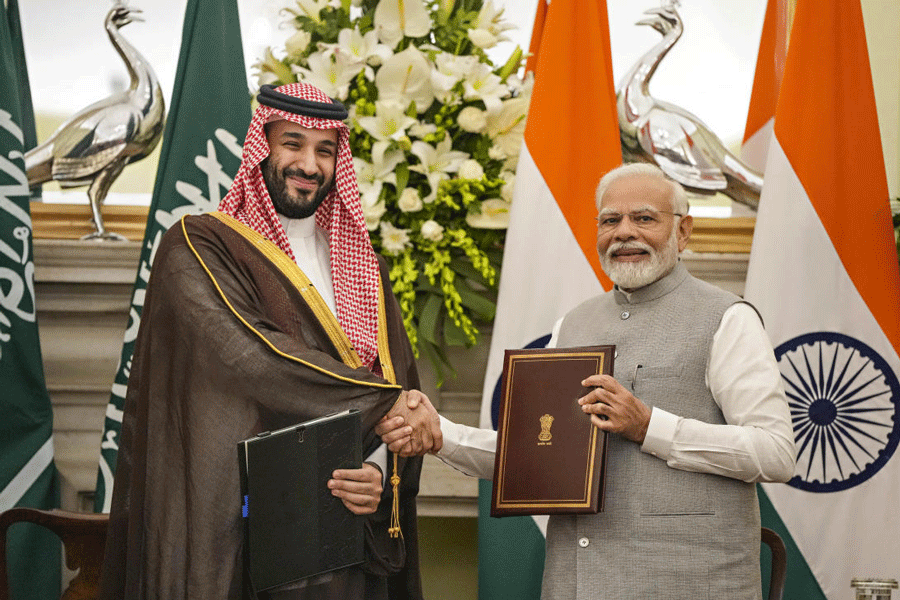After joining the India-Middle East-Europe mega economic corridor on the sidelines of the G20 over the weekend, India and Saudi Arabia on Monday inked several pacts during Crown Prince Mohammed bin Salman Al Saud’s daylong state visit to co-chair the first meeting of the bilateral strategic partnership council.
Briefing the media after the meeting between Prime Minister Narendra Modi and MBS, external affairs ministry secretary Ausaf Sayeed, while responding to questions, said the economic corridor agreement was one of the biggest such plurilateral pacts inked. “It is basically connecting like-minded partner countries across geographies,” he said.
As to where the funding for this mega project would come from, Sayeed said it was still early days and funding issues had not yet been discussed.
At Monday’s meeting, the two sides agreed to diversify the current status of their hydro-carbon relationship into a comprehensive energy partnership. The energy agreement signed on Monday will cover renewable energy, energy efficiency, hydrogen electricity, petroleum, strategic petroleum reserves, and circular carbon economy.
The two sides extended full support for the early implementation of the West Coast Refinery Project, which got stalled though key stakeholders Saudi Aramco and Abu Dhabi National Oil Company have time and again maintained that they remain invested in it. At Monday’s bilateral engagement, the two sides decided to look into how to expedite it and have agreed to set up a joint mechanism to deal with the bottlenecks.
The mega petrochemicals-cum-refinery project — announced in 2015 — was set to come up in Maharashtra.
According to Sayeed, India and Saudi Arabia have also begun discussing visa waivers for diplomatic passport holders but maintained that while this had been deliberated upon in the run-up to the meeting, it did not come on Monday. Once in place, diplomatic passport holders on both sides will not need visas. This is an agreement that exists between many countries. India has such an agreement with all the Gulf Cooperation Council (GCC) countries except Saudi Arabia.
As is becoming routine in India’s bilateral engagements, cooperation in FinTech was discussed and the two sides will also explore the possibility of trading in local currencies. Discussions have begun and notes exchanged, Sayeed said, adding that the Saudis are aware that India has been entering into such agreements for trading in local currencies with other countries.










